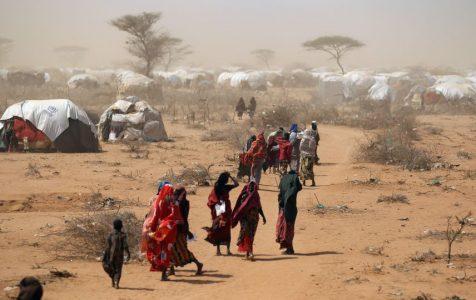
UN official: “ISIS is sending terrorists from Africa to Europe”
Islamic State commanders fleeing Syria are conspiring with extremist groups in Africa to foment and infiltrate a new migration wave destined for Europe, the head of the UN World Food Programme has said.
David Beasley, a former Republican governor of South Carolina, said Europe needed to wake up to the extremists’ strategy in the Sahel region.
Those forced out of Syria were uniting with local terrorist groups to use a lack of food as both a recruitment tool and a vehicle to push millions of Africans towards Europe, he said.
Speaking to the Guardian during a visit to Brussels for a two-day Syria summit, Beasley said: “You are going to face a similar pattern of what took place years ago, except you are going to have more Isis and extremist groups infiltrating migration.
“What we are picking up is that they are partnering with the extremist groups like Boko Haram and al-Qaida to divvy up territory and resources and to continue to infiltrate and destabilise in the hope of creating migration into Europe where they can infiltrate and cause chaos.
“My comment to the Europeans is that if you think you had a problem resulting from a nation of 20 million people like Syria because of destabilisation and conflict resulting in migration, wait until the greater Sahel region of 500 million people is further destabilised. And this is where the European community and international community has got to wake up.”
A four-year campaign against Isis has destroyed much of the group’s so-called caliphate, confining it to a tract of land in the Euphrates valley near the border with Iraq and decimating the cities of Raqqa and Deir ez-Zor. But officials involved in the campaign say at least 2,200 fighters remain entrenched in the east of Syria.
Beasley, who supported Donald Trump’s US presidential campaign and was nominated by Trump for the World Food Programme role, said the White House and Capitol Hill were “stepping up” their funding of the agency’s work, with $3bn (£2.15bn) expected this year, compared with $1.9bn in 2016, but there was huge hole in his budget.
The agency has had to reduce the provision of rations elsewhere in the world, including in North Korea where children and pregnant women are having to be prioritised. Beasley is to travel to Pyongyang in the next few weeks to formulate a strategy with Kim Jong-un’s regime.
Beyond the exploitation of the food crisis in the Sahel region, Beasley said there was a catastrophe in the making on Syria’s southern border, where about 5.6 million refugees were struggling to survive.
“Inside Syria we are €310m short. Our goal is to reach 4 million people, out of the 6.5 million who are seriously food insecure. And at this stage we are only meeting approximately 3 million due to lack of resources,” he said.
“Outside Syria, in Turkey, Jordan, Lebanon and Egypt, our funding needs for January to December 2018 are $1.38bn and we are $340m short of that. At this stage we will have to cut 500,000 people’s food in Jordan starting [in] June.”
Beasley said of the cash shortfall: “It is not a spike in demand, it is donor fatigue. You have got Yemen, you have got Iraq, you have got Somalia, South Sudan, Nigeria. There are 19 or 20 countries in protracted conflict, and then greater Sahel is percolating.
“But you can’t afford for Jordan and Lebanon to destabilise. It will bring true chaos to the region. Further chaos will lead to foreseen consequences. It would not be unforeseen now.
“The international community, the Europeans especially, learned a lesson in the early part of the Syria war that if you don’t supply food security you are going to have unintended consequences. I have talked to people, not just in Syria – women who will say: ‘My husband did not want to join Isis but we had no food, we had no choice.’ They have a strategy.”
Beasley said the White House needed to see its international partners providing funds, but he was pleased by the efforts by the UK and Germany. “I am still hoping that France will step up, they haven’t with relation to us,” he said.
At the Brussels summit, the UK’s international development secretary, Penny Mordaunt, pledged “at least £450m this year” for Syria, to be spent on healthcare.
Source: Guardian





